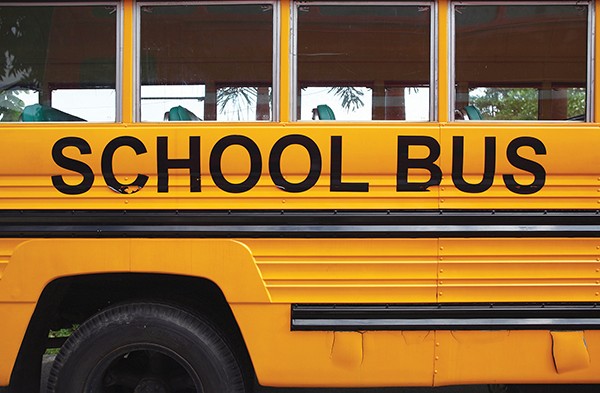Remember elementary school? No one was worrying about their taxes, gas prices, or whether there would be a viable planet for our future generations. No, the hot topic in our circles in the then Memphis City Schools was “If it’s raining today, what are we doing for recess?” That may still be a relevant, pressing issue today — that is, if students these days are able to go outside at all in between mandatory state testing — but I haven’t checked in with the primary school population recently for a quote.
In those years, I took the bus to school and back. Two days out of the week, however, I would be on the bus four times a day. It was not because I had a long commute to school that required city bus transfers. Rather, I was taking the bus during school. In the middle of the day, my friend (we’ll call him Dev) and I, two little brown kids, would be called out of class, board the bus, and be taken to another elementary school just two miles away.
As a now seasoned Memphis driver, two miles is not impressive, but Dev and I were nine and we felt that our commute and having to ride to and from classes made us professional 4th graders. Granted, this cut some serious time into our recess schedule, but we didn’t complain. We had the entire bus to ourselves for Two. Whole. Miles. Sure the rides were bumpy, some of the vinyl in the seats had rips that exposed the cloth underneath, and several sharpie scribbles by morning and afternoon commuters decorated the inside of the bus, but that was nothing compared to the warmth and hospitality of our companion and driver that facilitated our trip to a school that promised smaller classroom sizes and our choice of candy at the end of each lesson.
 Krischam | Dreamstime.com
Krischam | Dreamstime.com
Dev and I were in a program called CLUE, Creative Learning in a Unique Environment, which had a small group curriculum that gave the instructor more flexibility to personalize to each student. Dev started CLUE a year earlier than I did because I had transferred from a Miami public school where I was set to start the program in 1st grade but was passed around taking Florida and then Tennessee assessments that would later label me as an intellectually and academically “gifted” student.
These arbitrary and subjective tests ultimately determined the investment I received as a student such that by the age of six, the trajectory of my academic career was planned before me. These scores do not truly tell us whether a child has the ability or capacity to take honors and Advanced Placement college courses years ahead in high school. No assessment can measure that. They determine the kind of preparation a child receives — that is, whether they will be receiving challenging, cognitively engaged learning that will prepare them for “advanced” classes in the future. Dev and I received this preparation that eased the transition into honors and advanced courses in middle school and later high school. But that also meant that many of our peers did not receive that level of investment and preparation, which over the years, adds up.
Barely at the double-digits age mark, Dev and I did not have the language to express how public education programs and policy such as these affected our daily lives and relationships, but we felt it. We felt the nuances of enforced separation and isolation from our classmates. Twice a week, we were physically separated from them, pulled from our zoned school which was predominantly black, Latinx, and poor and bussed to a better-funded, optional elementary school down the street. There, we engaged with brainteasers, word games, read short stories about history, and were encouraged to express ourselves through creative writing, which made going to class an enjoyable experience. We weren’t being asked to memorize and regurgitate facts or sit quietly in our desks with busy-work; we were challenged to ask questions and learn about ourselves and each other through a critical pedagogical approach.
We wanted to share these experiences (and the candy) with our friends. There was definitely room in the bus for the other 22 students in our class to join us on our trips … why couldn’t they come with us? Why couldn’t we bring our puzzles and word games to them?
These questions troubled our minds in the background as we rode back and forth to schools. Dev and I did not understand what about the CLUE assessment was so significant to adults that they divided us from our friends who we believed would also enjoy being challenged to think creatively in class. We were all students at the end of the day, all with limitless potential and all deserving of a quality, well-funded, gifted education.
I’m not sure where or how Dev is today. In 5th grade, my parents were advised by administrators and faculty to transfer me to the second school because I was missing instructional time during the drive in between schools. I stopped taking the bus with my fellow commuter.
The decisions my folks made were difficult, as all decisions regarding a child’s education and future are for parents. They wanted a better education for me than the one they had, and for that, I am eternally grateful. The education I received through the challenging learning environments in CLUE and similar programs equipped me with the tools, language, and critical thinking to believe in and expect more in a public education system, to have the resources and well-paid teachers and staff who can facilitate engaged learning for all students to ask these questions, too.
Aylen Mercado is a brown, queer, Lantinx chingona purusing an Urban Studies and Latin American and Latinx Studies degree at Rhodes College. A native of Argentina, she is researching Latinx identity in the South.